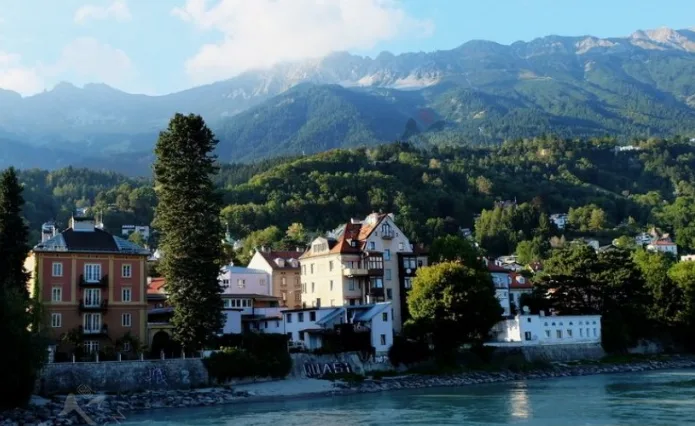When we refer to "Immigration to Austria", many people's first thought is that work visas, investmentimmigrantsorskilled migrant. But did you know? In Austria, there is actually another way to migrate that doesn't require a job, doesn't require a business, and doesn't require a high investment - theNon-profit residence permit (Niederlassungsbewilligung - ausgenommen Erwerbstätigkeit)The
It is designed for people who wish to live in Austria on a long-term basis but are not economically active. For retirees, freelancers, and families with passive income, it is certainly a relatively low-key but very practical migration path.
I. What is a non-profit residence permit in Austria?
A non-profit residence permit is simply understood as a "living migrant". The applicant does not need to work or run a business in Austria, as long as he/she can prove that he/she has the right toStable sources of income,Good housing conditions,Adequate knowledge of the German languageThe person will be able to obtain permanent residency.
Its core philosophy is that you will not be dependent on the Austrian social welfare system for your life in Austria, and at the same time will not participate in the labor market.
II. What are the basic conditions for application?
Although there is no work or investment involved, the Austrian government places great importance on the applicant's ability to be "self-sufficient". The following are the main conditions:
✅ 1. Stable economic resources
You must show that there is a continuous passive income or savings that cover living expenses in Austria.
-
Single applicants: Monthly income needs to beMore than 1100 euros(Varies by region)
-
Two-person family: approx.More than 1700 eurosSupplementary living expenses per child
Acceptable forms of income include pensions, rental income, dividends, interest on fixed deposits, trust income, etc.
✅ 2. Proof of residence
You need to rent or own a conforming residence in Austria, not a hotel or temporary accommodation.
✅ 3. Health insurance
Must be purchased with coverage equal to that of a native Austrian residentPrivate or statutory health insurance, can't be travel insurance.
✅ 4. Language proficiency (A1 German level)
Although only the beginner's level is required, proof of German language proficiency has become mandatory and can be obtained by attending Austrian language school courses and taking exams.
✅ 5. No criminal record
Applicants are required to demonstrate a good background by providing a certificate of no criminal record from their past country of residence.
III. How do I apply for a non-profit residence permit?
This residence permitApplication must be made at the Austrian Embassy or Consulate in the applicant's country of residence, and cannot be converted to residence after entry on a tourist visa.The
The application process is as follows:
-
Prepared Materials(Passport, proof of residence, financial proof, health insurance, language certificates, etc.)
-
Make an appointment with the Austrian Embassy in your country and submit your application
-
Waiting for approval from the Austrian Ministry of the Interior (usually 3-6 months)
-
Upon approval, enter the country with a visa and receive a residence card (card valid for 1 year, renewable).
Quotas are limited each year and early application is recommended.
IV. For whom is it suitable?
-
Retirees: have a foreign pension or other stable income and want to enjoy a high quality of life in Europe
-
Freelance or remote workers: Non-dependence on income from local Austrian employers

-
Families with an economic base: Wish to provide European education and living environment for children
-
Hoping to emigrate to Europe on the down low: People who do not want to immigrate through high thresholds such as investment, entrepreneurship, or purchasing a home
V. Advantages and limitations of non-profit residence permits
🌟 Strengths:
-
Not required to work, start a business, invest
-
Available for the whole family

-
Renewable and can be converted to permanent residence or apply for citizenship upon fulfillment of conditions
-
Freedom of travel within the Schengen area
⚠️ Restrictions:
-
Not available for work (including freelance work)
-
Limited quota, very few places in some regions
-
Longer application cycle and complicated procedures
VI. Real Case Sharing
Ms. Wang is a retired teacher from China with a stable monthly pension and two apartments for rent in China. She applied for a non-profit residence permit through the Austrian Embassy in Beijing and was successfully approved in just half a year. She is currently living in Salzburg, returning to China in spring and summer, and residing in Austria in fall and winter, leading a leisurely and comfortable life.
VII. Future trends and recommendations
Immigration to AustriaAmong the "relatively friendly but robust" types of global immigration policies, nonprofit residency, while not as favorable as the "non-profit" type, is not as favorable as the "non-profit" type.skilled migrantPopular, but increasingly popular withFavored by people who want to obtain long-term residence status in the EU at a low costThe
If you want to escape from the fast-paced life, but do not want to be burdened with the pressure of high investment, Austria, the "silent immigration channel", may be the ideal choice for you.






